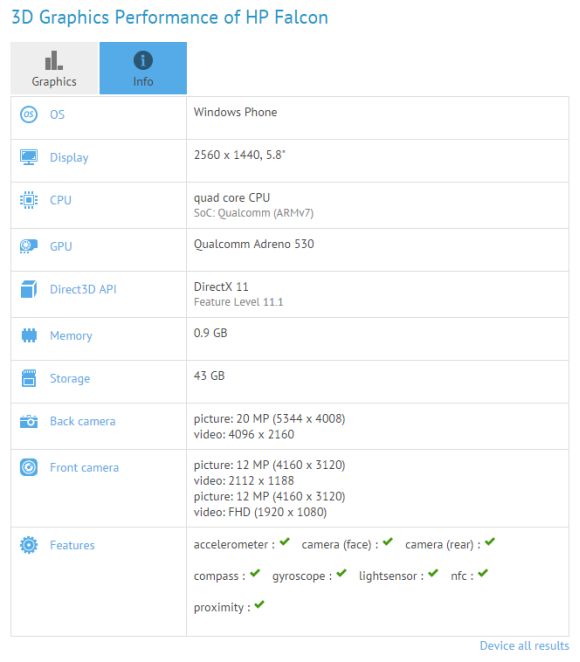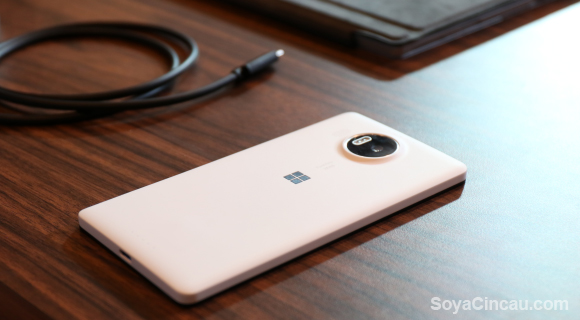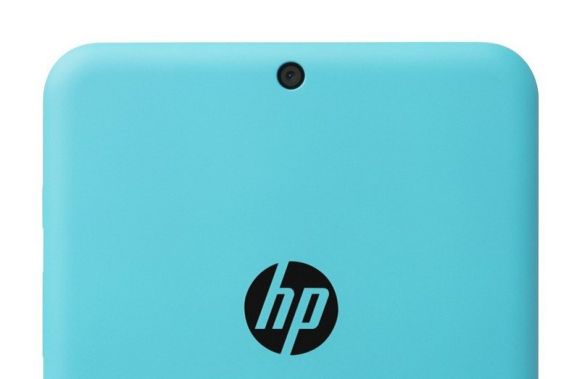Microsoft‘s Windows 10 Mobile flagships have not had the…warmest of receptions. Both the Lumia 950 and 950 XL were plagued with bugs and poor (particularly plasticky) build quality which irked even the most steadfast of Windows Phone fans.
Perhaps Microsoft simply doesn’t know how to make good flagship mobile devices, but that’s a tough claim to make considering not many are having a go at it.
Until now.
Early this month, a fancy new Windows Phone dubbed the HP Falcon was spotted on GFXBench. What caught everyone’s eye was the dragon it had beating at the heart of the device; a Snapdragon 820 to be specific. It was the first Windows Phone device to have been spotted with Qualcomm‘s latest baby in the driver’s seat.

What’s more, the GFXBench entry also indicated that the device would feature a large 5.8″ 2560×1440 pixel panel with a 20-megapixel primary camera and a 12MP front-facing selfie camera.
Mmm, yummy specs.
There were some oddities, however, as memory was only listed at 1GB of RAM with a peculiar 43GB of internal storage. Then again, it isn’t uncommon for manufacturers to configure the device differently when running benchmarks.
In any case, it looks like there could be a monstrous Windows Phone (likely running Windows 10 Mobile) set to be released sometime next year. In fact, a new report out of Germany’s Dr Windows claims that the device could see an official unveiling at the upcoming Mobile World Congress (MWC) 2016 in Barcelona next February.
However, the report also notes that HP has yet to give the project the final go-ahead. With specs that exceed even Microsoft’s own Windows flagship devices (plus it could be cheaper), could this be the Windows Phone messiah fans have been waiting for?
We doubt it. Especially if Windows 10 Mobile doesn’t receive the updates it needs in time. Though we haven’t spent time with the Lumia flagships, reports and reviews point to a worrying trend of incomplete (plus buggy) software, similar to that on the Surface line of 2-in-1 devices.

Reviewers have noted some minor problems such as 4K video recording not working properly to big problems like the home screen disappearing entirely after an app crashes — something that happens quite often apparently — which shouldn’t happen in a completed product. If these problems lie with Windows 10 Mobile, then all the hardware in the world won’t be able to save the experience.
It is admirable that it seems like HP wants to show Microsoft how to really build a Windows 10 Mobile flagship, but unless Redmond steps up its own game, the new device will likely not amount to anything. What a shame that would be.







